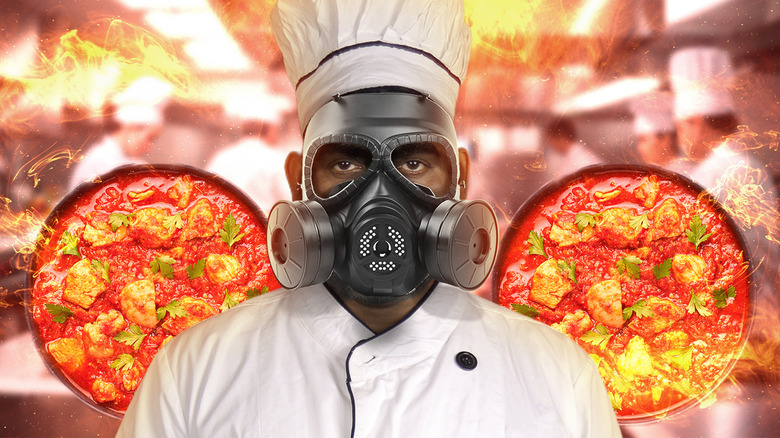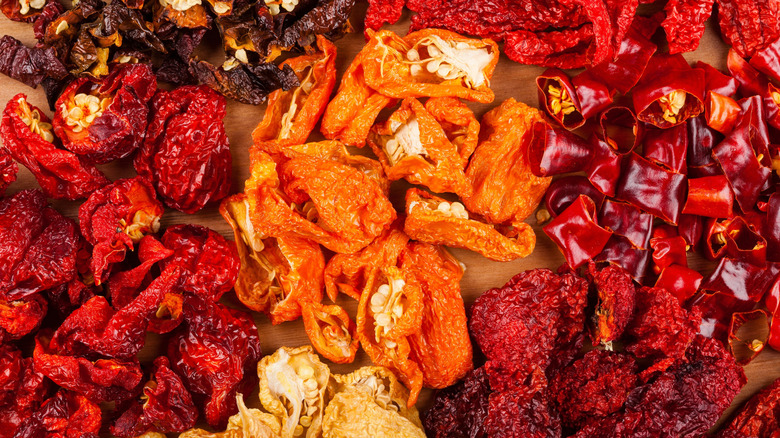The Spicy Dish That's So Pungent Chefs Have To Wear Gas Masks When Making It
If you love spicy food, there is a dish that's so spicy chefs have to use gas masks to make it. And while you might expect that in Thailand, India or southern China— places known for their spicy cuisine — you'd be wrong. You'll find it in merry ol' England. Yep, the place known for boiled meats and the toast sandwich, which is literally a sandwich composed entirely of bread. Doesn't exactly spring to mind when you think of a place that has a dish with over 2 million Scovilles. (If you want to try what 2 million Scovilles feels like, we do have a list for you.)
But this isn't spicy beans on toast or something like that. It's a curry dish from a restaurant in Birmingham, U.K. called phaal curry. No one actually knows how or why this dish came to be. A need to punish customers? A need for customers to feel awful? Who knows. It does seem to be a product of the distinctive convergence of Indian, Bangladeshi, and British cuisine. It's so spicy because the recipe calls for the use of several ghost chile peppers (also called naga jolokia), which usually contain about 1 million Scovilles per fruit. If you're stateside, you can always try Brick Lane curry house in Jersey City, just don't be surprised if you pass out, vomit, or maybe even hallucinate.
Why do we eat spicy food?
While this article isn't the venue to wax poetic about some people's need to consume extremely spicy foods, it's always good to pause and wonder: what's up with that anyways? As we've covered before, spicy foods can actually make you feel great. When you consume foods with capsaicin, your body actually does treat it like a burn. Basically the way capsaicin is shaped fits perfectly into some taste receptors that are used to sense heat. When capsaicin locks into those receptors on our tongues, it tricks the body into thinking it's consumed something far too hot, chemical alarm bells start sounding in the brain, and to counteract the fake burn, the brain releases endorphins, our natural pain relievers. While it's actually not proven to cause hallucinations, consuming large amounts of extremely spicy food, like phaal curry, can make you overstimulated and hyper sensitive to other stimuli.
It's been conjectured that spicy foods became popular a very long time ago because peppers and spices contain some levels of antimicrobial agents, meaning peppers might have helped keep food fresh and free from food borne illness, though the efficacy of this is debated. We might never know precisely why we are really the only mammals that seek out and tolerate spicy food, or why people seem to seek out pain. Whatever the case may be, if you love spice but hit your limit, reach for milk or Kool-Aid to get you through the pain.

